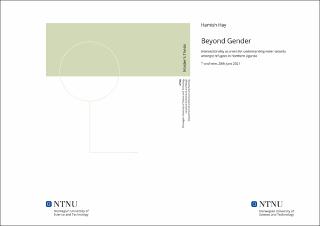| dc.description.abstract | This thesis critiques the received wisdom that gender is the overriding social difference when planning for water access and water security. Whilst water is undoubtedly a heavily gendered experience, research has revealed that intersectionality, the study of multiple interlocking social differences, could build a richer understanding of systems of inclusion and exclusion. The concept, which is widely explored in academic discourse, has seldom been used to understand water security or plan for water access.
Uganda has experienced unprecedented levels of migration since the outbreak of civil war in South Sudan in 2013. Concurrently, it has implemented an unusually liberal refugee regime which gives registered refugees the freedom to work, move, and access most public services. Until recently, the humanitarian sector has primarily been responsible for needs-based water provision in refugee settlements. However a transition, with the support of humanitarian actors, is currently being undertaken towards a utility-led water supply model.
This thesis explores intersectionality within the case of South Sudanese refugees in Northern Uganda. The researcher set out to understand: how households access water; knowledge of intersectionality amongst key stakeholders; and whether intersectionality could be a useful lens for water access planning and monitoring.
Through an extensive literature review around the theoretical domains of poverty reduction, humanitarian relief and development aid, and intersectionality, the researcher developed a theoretical model. It combined knowledge around how South Sudanese refugees in Northern Uganda could experience water security and insecurity, with a focus on the interlocking socio-spatial differences of gender, class and ethnicity. The researcher then interviewed 10 key expert informants from the humanitarian sector to explore knowledge, attitudes, and practices around intersectionality within their field of responsibility. Two quantitative survey datasets, conducted nationally amongst refugees and host communities, were analysed to examine potential relationships between social differences and indicators of water security.
The researcher concluded that, despite some awareness of intersectional experiences, there is little application of knowledge around intersectionality within the case. Nevertheless, the concept has the potential to greatly contribute to a more useful theoretical lens beyond gendered analysis and provision. This could be advanced through additional academic research and practical applications by humanitarian and development agencies. | |
